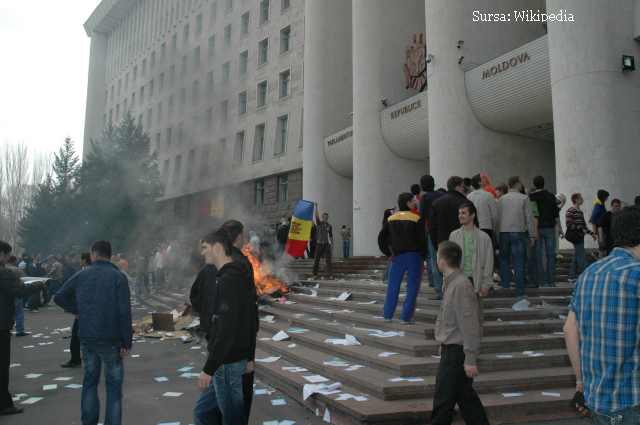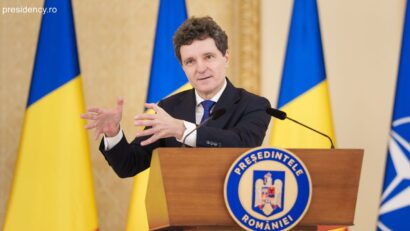Five Years since the Protests in Chisinau
The year 2009 was a crucial change in the fate of the Republic of Moldova, as the return to power of democratic forces brought this ex-Soviet country back on the path to the EU. The change was prompted by the anti-communist protests of April 7th.

Valentin Țigău, 07.04.2014, 12:20
Five years have passed since the anti-communist protests in the Moldovan capital city of Chisinau. Tens of thousands of people took to the streets in protest against the 2009 parliamentary election rigging, in which the communists claimed victory.
Further to the rallies, the opposition parties twice vetoed the election by Parliament of the communist candidate for presidency, which led to the dismantling of the legislative body and the organization of early elections in July 2009. This time around, the communists failed to win a majority and an alliance of democratic parties took power. According to the Radio Romania correspondent, many aspects related to the April 7, 2009 riots are yet to be clarified.
The Communists view the events as a coup backed by Western powers and by Romania, a position denied by both Bucharest and the other Western capitals. Investigators are still probing into the death of three Moldovan citizens and the wounding of another 300 youth in clashes with the security forces.
Mihai Balan, head of the Intelligence and Security Service: “It is hard to get a general image on the action and interaction of all the elements drawn into this subversive scenario, on the role and place of each actor, on their mechanisms, tactics and implementation principles.”
Five years after the anti-communist demonstrations in Chisinau, the Republic of Moldova confirms the pro-democratic and pro-European choice of the parties currently in power. By June this year, the former Soviet Republic will have signed the EU Association and Free Trade Agreements, starting the EU accession process. A supporter of Moldova in this process, Romania confirms Bucharest’s will to carry on this policy.
PM Victor Ponta: “There is nothing I would like more than for the Republic of Moldova to have prosperity, peace, security, and when Romania holds the EU presidency in 2019, we would like to see Moldova at the same table with the EU members.”
In the context of the geopolitical complications entailed by the Ukraine crisis and by the hotbed of domestic instability created by Transdniester’s separatist moves, Moldova’s European accession efforts may prove more important than previously thought.






























